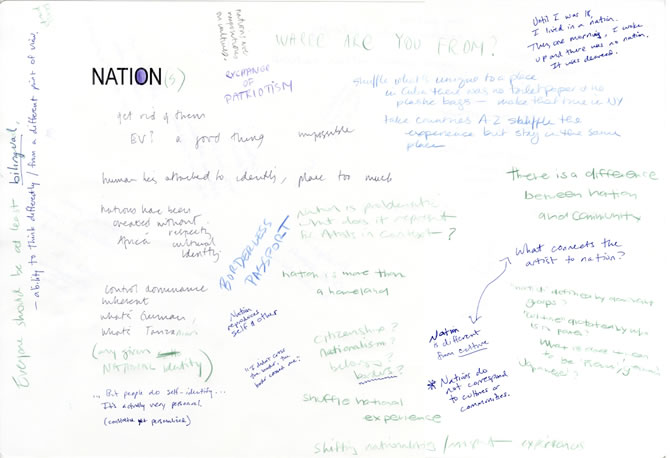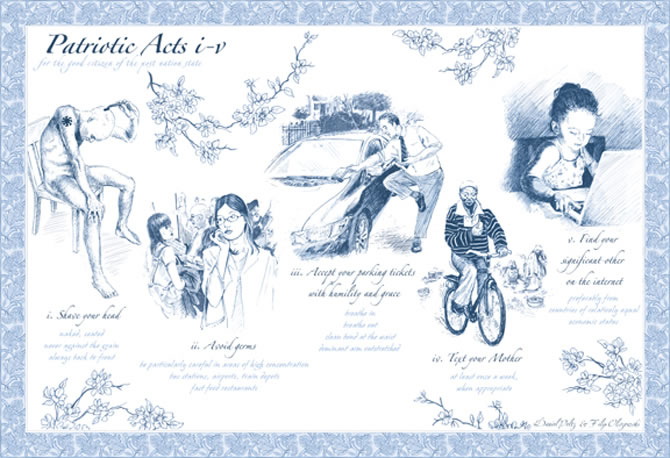In the current world, so thoroughly transformed by globalization, how do we conceptualize a nation? Is the nation-state, as scholar Benedict Anderson once proclaimed, an “imagined community”? The Internet, globalization of business and trade and even the ways in which popular culture is internationally disseminated serve as evidence that the traditional boundaries of a “nation” have become increasingly unclear. If the nation was arguably always an imagined entity, does the current condition of globalization only support such an idea?
We live in a world where infrastructure and technology allow for the instant sharing and diffusion of ideas as well as physical products. Such conveniences of globalization, however, also come at great expense. Social conflicts that range from the displacement of jobs because of outsourcing to poverty and increased inequality are fueled by the processes of a global economy. But even as the boundaries of nations are blurred in these examples, countries continue to engage in warfare and conflict. Living in a world where the notion of “nation” is so fraught with tension, where is there a sense of communal interest?
View the Nation Projects
Nation Discussion at Launch Dinner Event

Notation on Nation Table placemat
Following the public AIC launch event on the afternoon of Oct. 9, 2009, approximately 64 people reconvened for a dinner/discussion event at MIT’s Stata Center dining room, organized by the Platform 2 artists’ collective. Each table focused on one of the eight themes of the Artists’ Prospectus for the Nation, assisted by a commissioned placemat by a New England-based artist (see the “Nation” placemat below by Providence artists Daniel Peltz and Filip Olszewski). An empty placemat at each table was used by diners to record notes from the discussion. Pictured directly above is the notated placemat from the Nation Table.
Here is a summary of that discussion by one of the Nation Table’s notetakers:
Have we, as a society, moved beyond conceptualizing the world as comprised of separate nations? Do we live in a “post-nation” state? More importantly, perhaps, what does that actually mean?
The discussion surrounding NATION, one of the eight Artists’ in Context prospectus topics, was tied very strongly to each individual person’s definition of NATION. When you hear the word NATION, do you think of countries? People? Borders? Maps?
How does your personal understanding of NATION shape your identity?
Today, as national boundaries become increasingly blurred, how can the inclusion of the term NATION in the Artists’ Prospectus serve as a platform for critical inquiry and conversation?
Our discussion throughout the evening was open-ended, creative and, not surprisingly, inconclusive. Listening to how people conceived of and used the word NATION expanded my understanding of the term. The opportunity to participate in the discussion enabled me to leave the table with more questions about the issues surrounding NATION than when I first sat down.
Although tackling a very large topic, the discussion at the NATION table was deeply personal. Our understanding of NATION was and is constantly evolving. Touching on everything from imagining a post-NATION world, to patriotism in such a setting, the dynamic conversation was truly evocative of the challenges of defining and re-defining what NATION means to us, today.
Reina Shibata

Launch dinner placemat for the Nation Table by Daniel Peltz and Filip Olszewski


